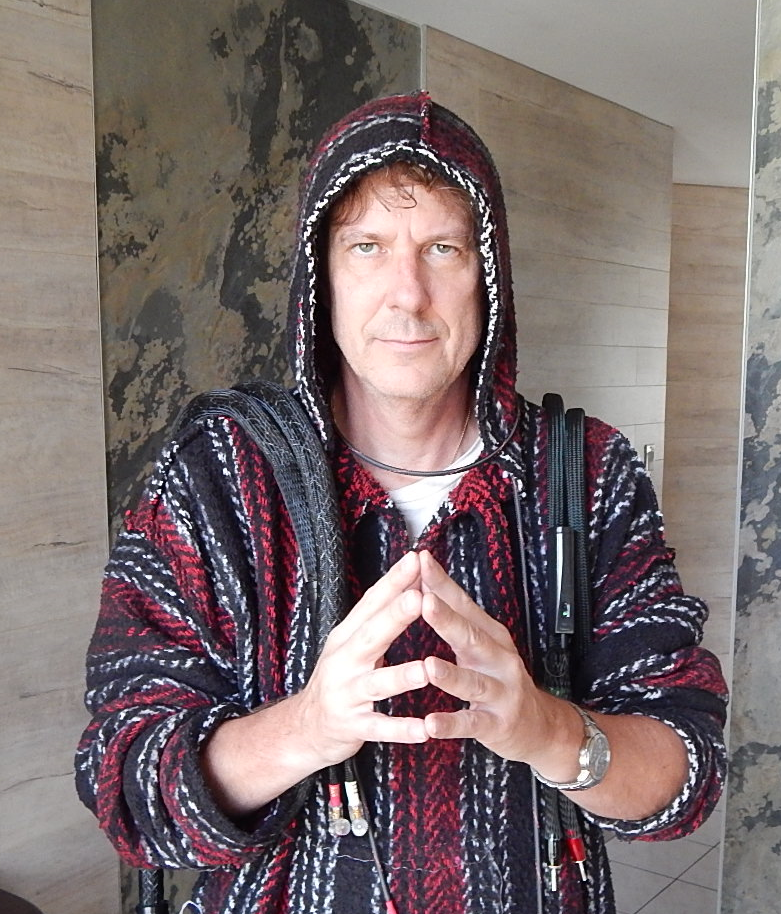
I’ve so far had the pleasure of listening and evaluating three digital cables and three interconnects from cable veterans AudioQuest, Kimber Kable, and Audience. I say “pleasure”, because although they may sound somewhat different from each other—not that different, mind you—they all sounded good, or, if you prefer, they didn’t muck up the sound. To the contrary, each evinced music’s inherent musicality. That doesn’t mean that one model may not sound better in your system than another. Throughout this series, I’ve tried to emphasize each cable’s strengths in the context of the other cables’ performances, in the hopes of being able to give you an idea about which cable you might prefer in your own system. Rest assured, though, that whatever cable you decide to go with from those I’ve talked about, none will disappoint. One, however, will probably suit your system—and your tastes—more than the others.
As with the previous installments, the following cables were used in a system comprising Focal K2 936 speakers, a Grandinote integrated amp, and a Moon 260D CD transport plugged into the DAC section of a Cambridge EVO 150 streaming integrated amplifier. I used a pair of Moon Audio Silver Dragon interconnects and a Kimber Kable D60 Illuminations digital cable.
And now for the subjects of this column, starting with the…
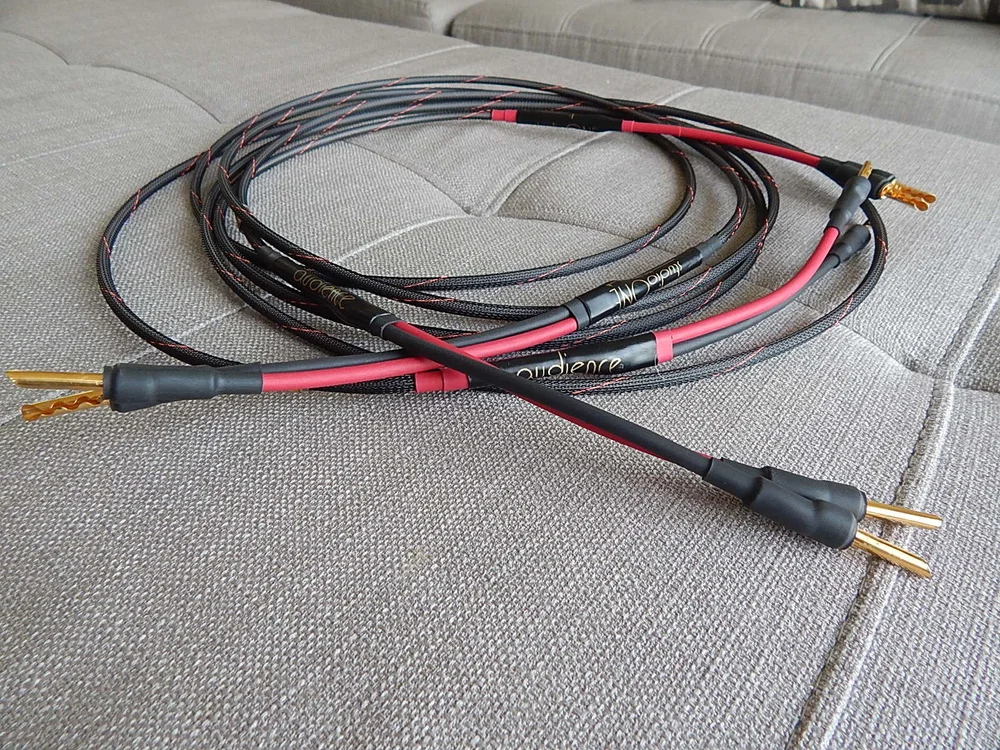
Recap time: The Studio ONE replaced the popular Au24 SE. It uses an improved dielectric over its predecessor, and has the added benefit of receiving the company’s EVHP treatment, which drives very high voltages into the cable to burn it in a way that can’t be done through regular listening use. This copper cable is also the thinnest and lightest of the three cables here. By design, Audience has made it a “low mass construction”, saying that the company avoids using heavy jacketing materials and heavy connectors on its cables as mass tends to absorb energy and dull the sound.
On Erikah Badu’s breakout 1997 debut Baduizm, the bass goes deep and the Studio ONE served it up rich, meaty, and well-defined. Unsurprisingly, this is a compressed, thin-sounding release, but still the Audience found ways to replenish the music with harmonic bloom and natural warmth. The Audience projected a large soundstage rich with ambient cues. Badu’s voice sounded realistic, its sibilants more rounded and natural-sounding than I was used to. The Studio ONE was also notable for reducing the digital glare on this recording to a near-undetectable level.
On Medeski Martin & Wood’s compilation CD Last Chance to Dance Trance (Perhaps), the music had an engaging, analogue-like flow. Notes were tactile and the overall picture seemed to have just the right amount of detail, along with an ideal tonal balance, neither too dark nor too bright. Nothing sounded artificial, emphasized or lacking. In fact, the Studio ONE’s presentation was the smoothest-sounding of the bunch, and please don’t misinterpret that as meaning boring.
Patricia Barber’s voice on her live CD Companion was palpable and natural, as was the clapping and the whoops of adulation from the audience. I could sense the presence of air—inside the venue, the instruments, through the crowd. Instruments were substantial and tonally rich. The proceedings sounded authentically live and human-made, rather than electronically reproduced.
Highlights: rich, refined, analogue-like, full-sounding, natural
Takeaway: An intoxicating, suavely musical cable that is the antithesis of fatiguing sound
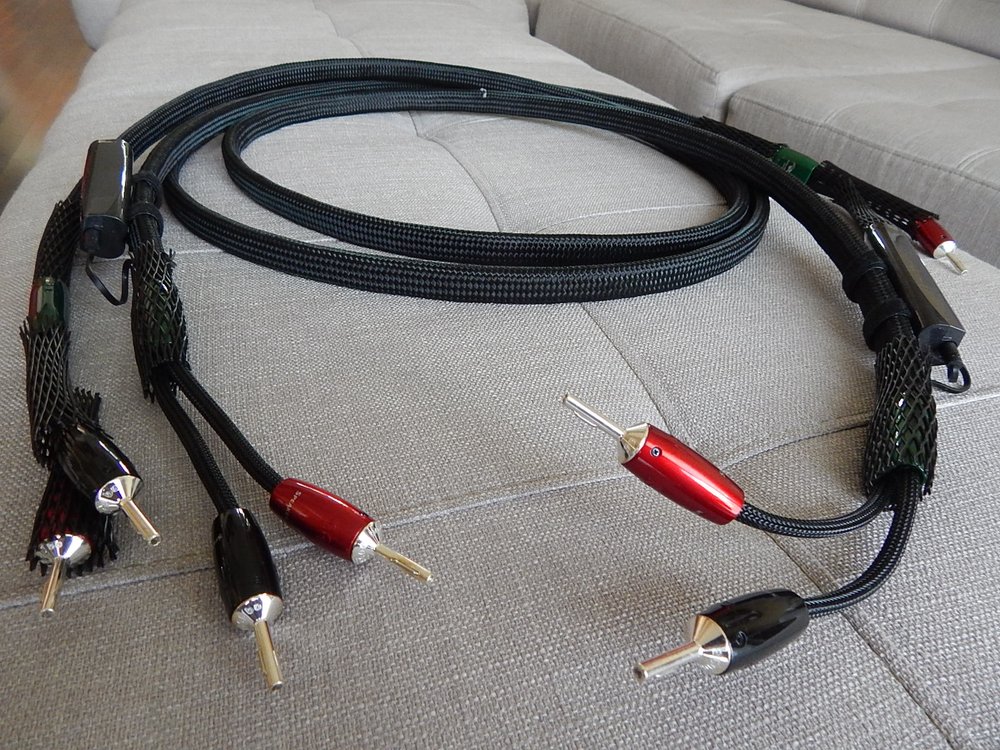
This 15 AWD gauge copper cable is part of the Folk Heroes line, which uses all of the same technology employed in the company’s state-of-the-art Mythical Creatures line, but with fewer conductors. According to the company’s literature, “The design team of Garth Powell and Bill Low specifically focused on addressing one of the most vexing issues plaguing speaker cable design: the mismatch between the amplifier’s source impedance and the speaker’s load impedance. By eliminating the speaker cable’s characteristic impedance (“ZERO Technology”), current compression and distortion of the signal/current transient are significantly reduced. The result is dynamic contrast, transient response, and bass slam that are rendered seemingly without effort, because the cable is not electrically impeding the music.”
The Robin Hood ZERO surprised me even before I hooked it up to my speakers. It felt sturdy. It had weight. Even its banana connectors looked unusually solid and thick, and they were, offering the tightest grip on the speaker terminals of the three cables.
Unsurprisingly, in light of my experience with AudioQuest’s previous cables in this series, the Robin Hood ZERO blew open the soundstage, turning it into a large globe-like hologram. While it didn’t smooth out the early-digital character of Erykah Badu’s Baduizm quite to the extent the Audience Studio ONE did, it offered a prodigious amount of detail, a sense of universal spaciousness, and an unobstructed and meticulously mapped-out view of the musical proceedings. Reverb trails and echoes drifted for miles. Choruses projected toward me with a colourfully shimmering, luminous quality.
On the Medeski Martin & Wood CD, bass lines were deep, dexterous, and well defined. Sound was imbued with a sparkling aura of aliveness, transient snap, deep-in-the-creases clarity, and at times elicited the uncanny impression that I was hearing—and seeing— the real thing in action. Again, soundstage depth was remarkable. Instruments were placed at multiple, clearly marked points stretching out in front of me. Of the three cables under audition, the AudioQuest offered the deepest, most resolved soundstage.
Listening to Patricia Barber’s live CD Companion, I often sensed that I was at an actual live event. The music sounded fast, snappy, liberated. The recording had an explicit, see-through quality to it—transparency, yes, but also in terms of spatial-recognition—of hearing across the dimensions of the room, the patrons’ tables, the stage. Rhythmic momentum was solid. I felt the energy of the concert, and its in-the-moment immediacy. It was exhilarating.
Highlights: soundstage size, transparency, detail, offers glimpses of hearing the real thing in real time
Takeaway: Like hearing beyond the physical constraints of a listening room.
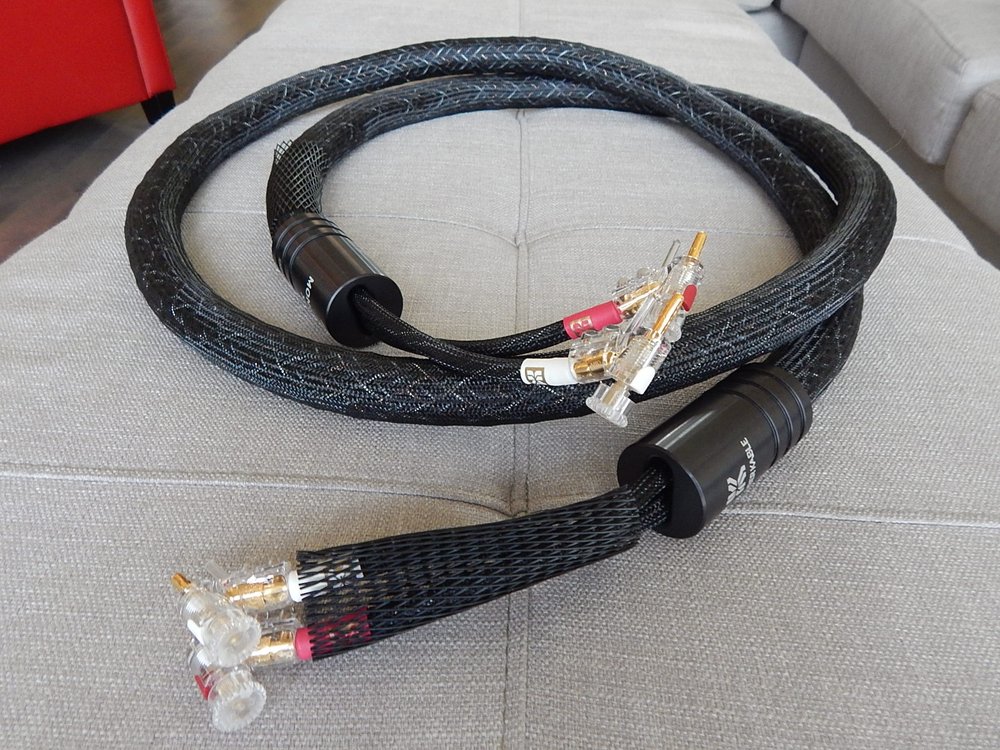
This is the fattest cable of the bunch and uses WBT’s locking 0610 CU angled banana plugs instead of the more common straight-firing design, so I suggest anyone considering inserting them in their system ensure that it’ll be practical to do so.
The top-of-the-line Summit-series Monocle XL uses a 24-wire helix braid of copper conductors said to provide mechanical and electrical damping, as well as extend dynamic range on both ends of the spectrum for a huge soundstage and precise imaging.
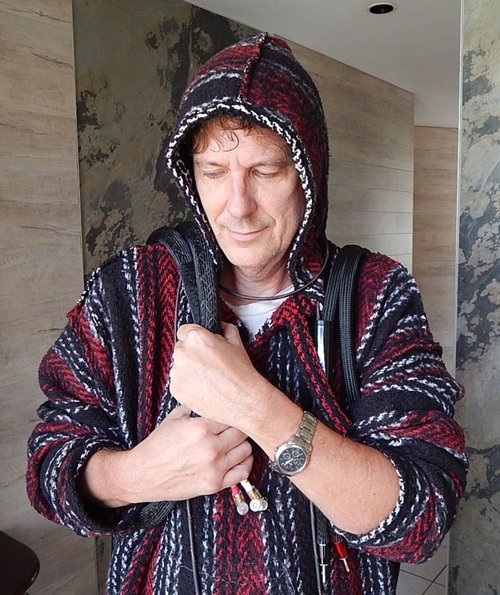
And that’s what I heard, among other things. On Baduizm, Badu’s voice was notably focused and intelligible, her vocal inflections prominent without being thinly etched. Her words had body, as if their sound was carved out in space. There was an inviting purity and harmonic expressiveness to the overall sound, accompanied by a rich bass undertow, that made me lean into the music with an open mind, amid detail that poured forth effortlessly. Timbres and transparency were excellent.
Medeski Martin & Wood’s “Chubb Sub” from Last Chance to Dance Trance (Perhaps) had a fat, bulging bass beat that propelled the music forward but steered clear of overriding the goings-on or timbres of the other sounds. The Monocle XL offered a beguiling combination of rich tone, suave note-to-note articulation, and a sense that I was hearing every creative decision laid down on this disc. At one point, while I was listening to this cable, the thought crossed my mind that the Monocle XL’s sound seemed to offer some combination of the Audience Studio ONE’s mellifluous rhythm and the Audioquest Robin Hood Zero’s detailed explicitness.
On Patricia Barber’s live Companion CD, the Monocle XL offered an abundance of ambient cues that gave architectural form to the inside of Chicago’s famed Green Mill nightspot, where the concert was recorded. The soundstage was big and spacious, and was wider than that produced by the other cables, with the instruments placed further apart from each other. Sounds were tactile and dynamic, while Barber’s voice was human-body warm and intimately explicit, making me hang on every breathy, sensuous note. It was riveting.
Highlights: explicit 3D imaging, big soundstage, realistic timbres, transparency, detailed, rhythmic
Takeaway: Offers a big, bodacious sound brimming with life.
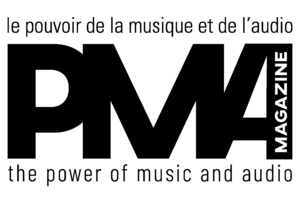
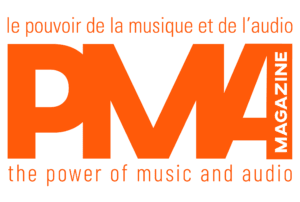


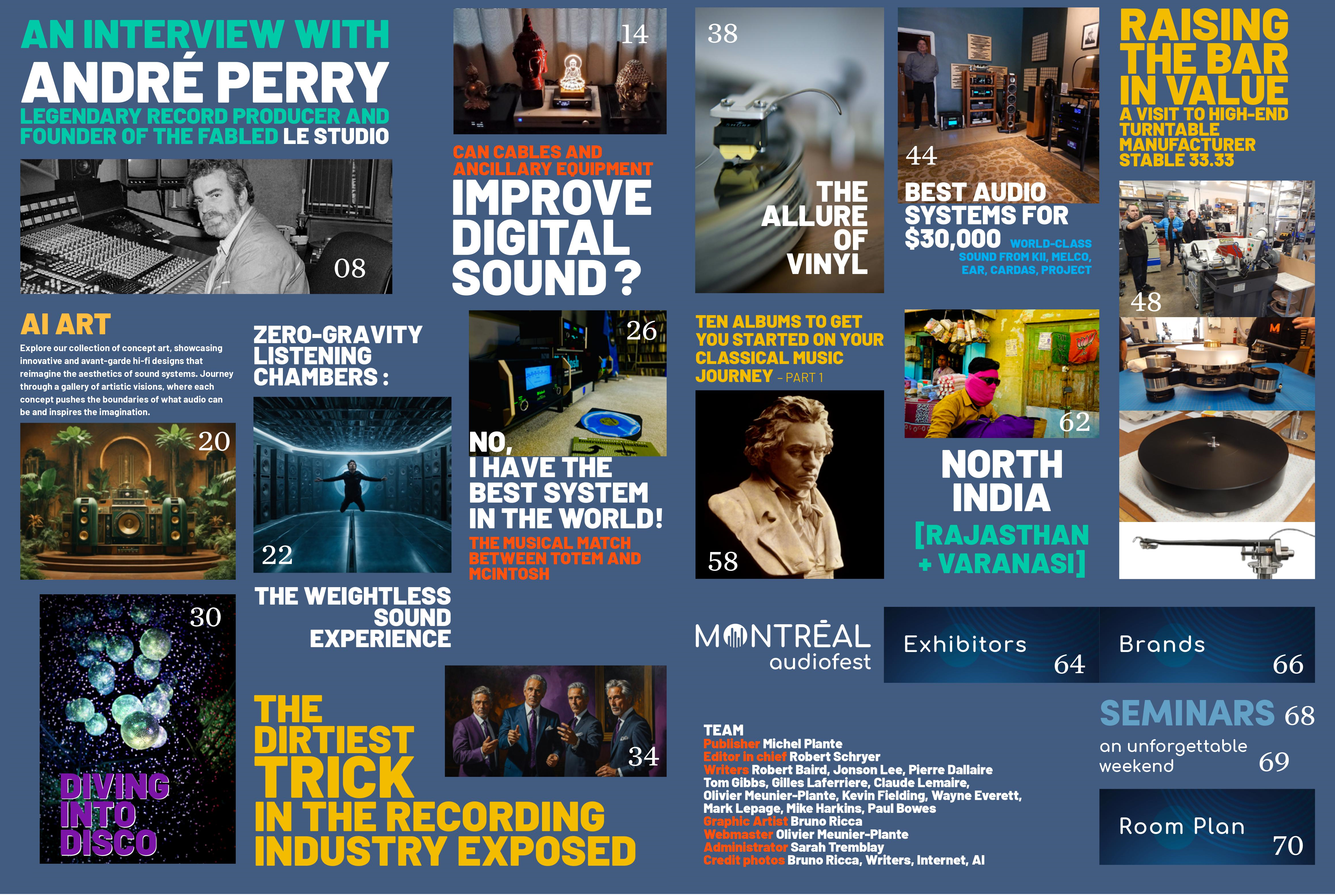
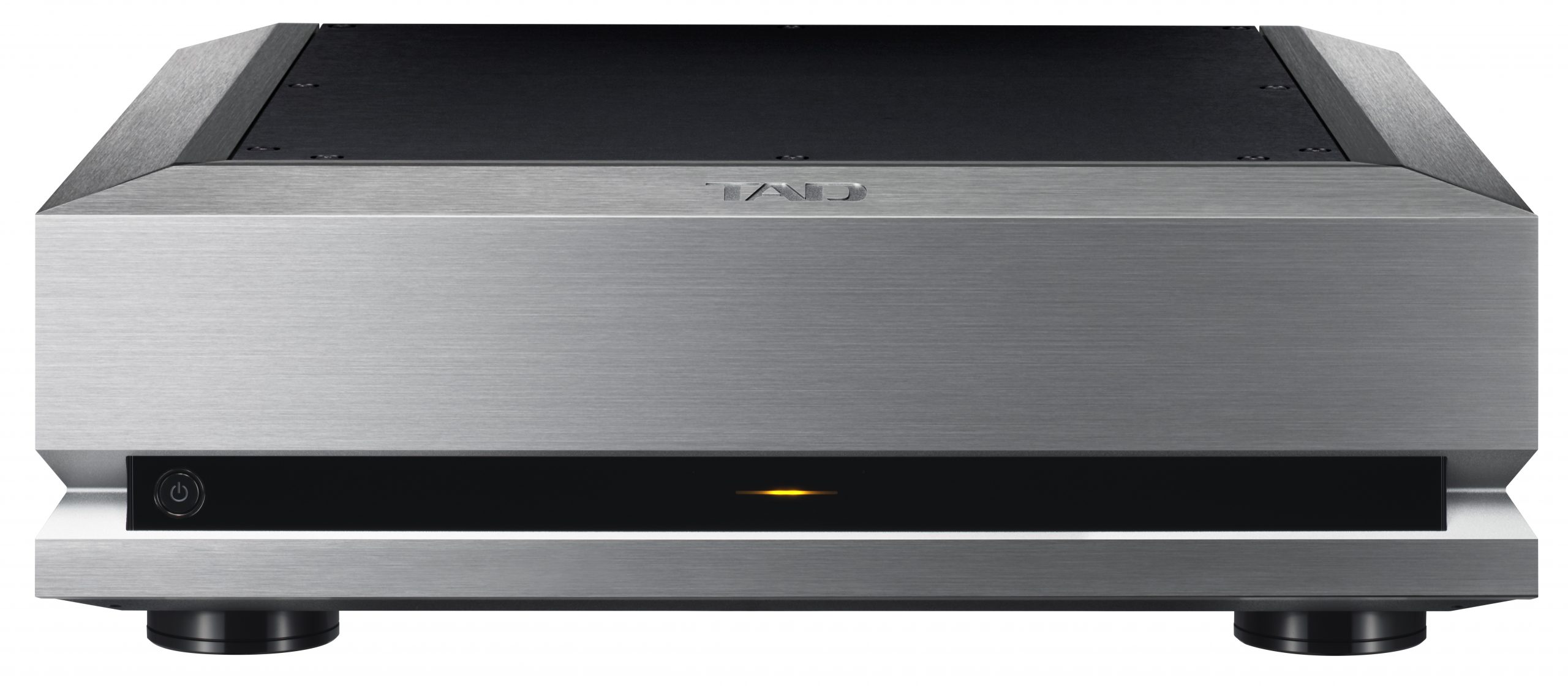
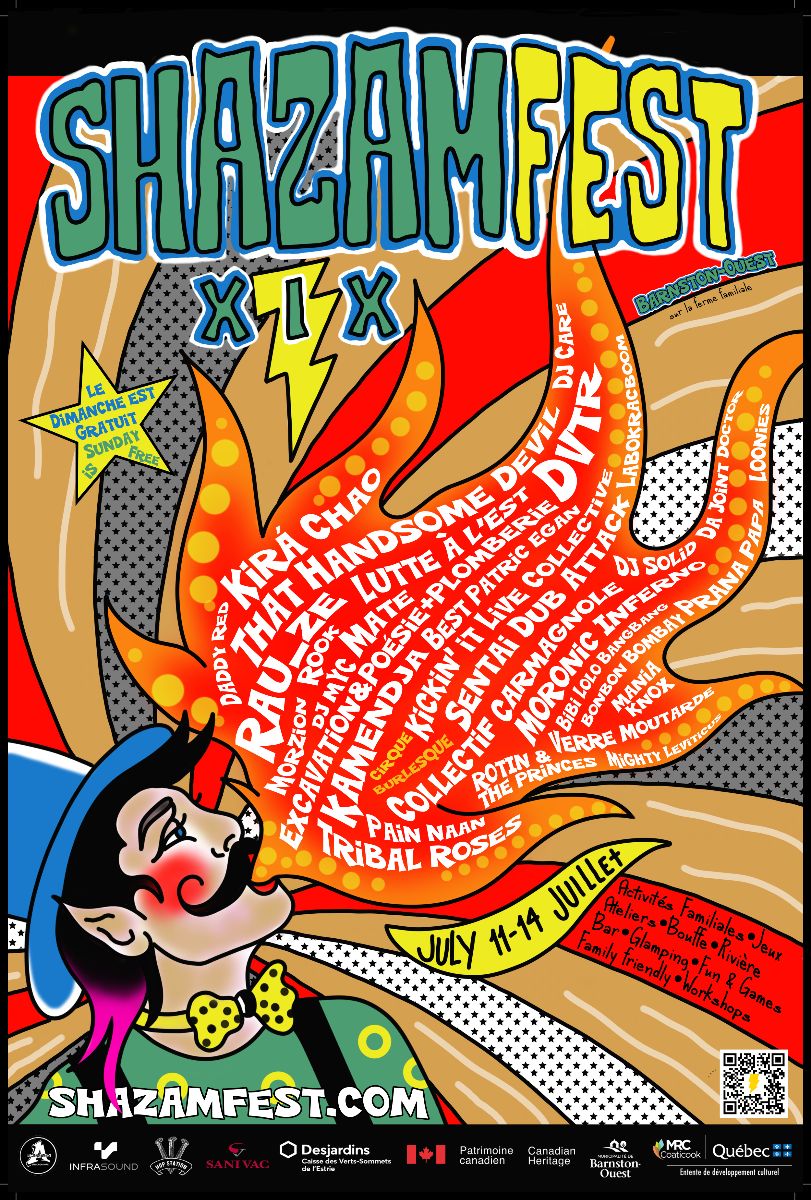


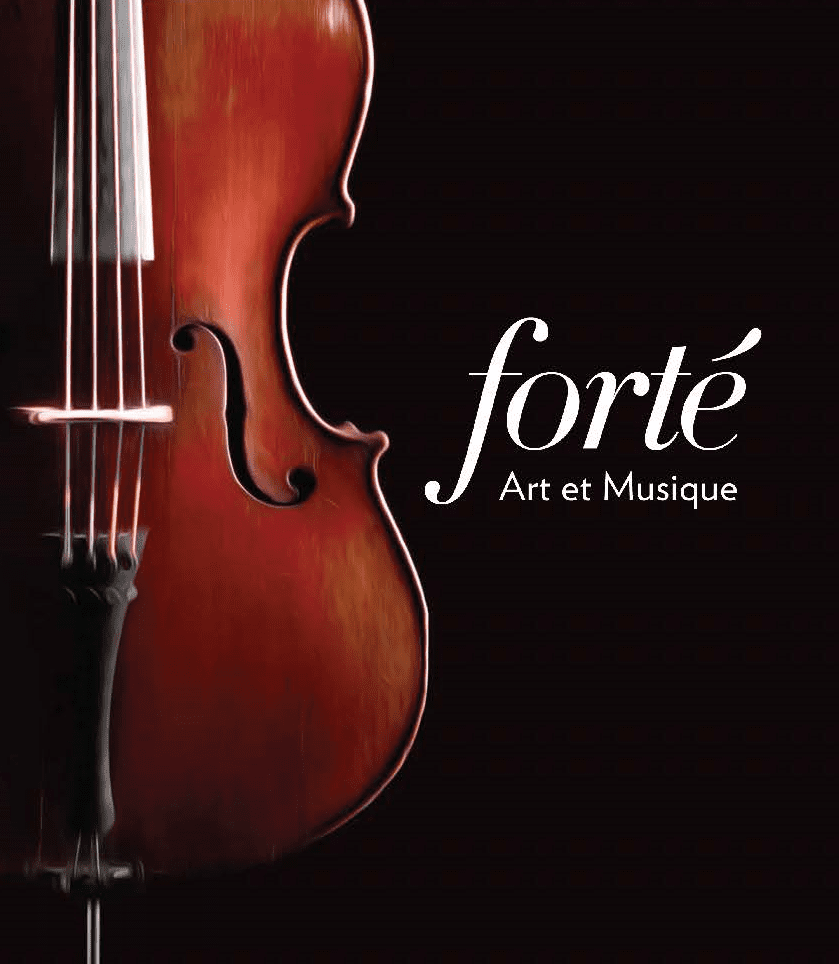
Leave a Reply